SCHOOL INTRODUCTION
The School of Microelectronics was founded in 2018 as one of the first schools jointly initiated by the Ministry of Education, Guangdong Province, Guangzhou City, and South China University of Technology (SCUT). The origins of the school can be traced back to 1958, when SCUT launched its Semiconductor Materials and Devices program, making it one of the first ten engineering institutions nationwide to offer this specialty. Over the past 65 years, SCUT has developed a comprehensive talent cultivation system for integrated circuits, covering undergraduate, master's, and doctoral programs, and hosts a postdoctoral research station in related disciplines. In 2004, the University was designated as a National Training Base for Integrated Circuit Talent by the Ministry of Education. In 2015, it was selected as one of the first national model microelectronics schools, and in 2021, it was granted the right to award doctoral degrees in the first-level discipline of Integrated Circuit Science and Engineering. That same year, the School of Integrated Circuits was established and developed together with the School of Microelectronics. In 2022, the Microelectronics Science and Engineering program was recognized as a National First-Class Discipline; In 2024, SCUT was approved by the Ministry of Education to establish the Engineering Research Center for Co-Optimization of Integrated Circuit Design and Technology.
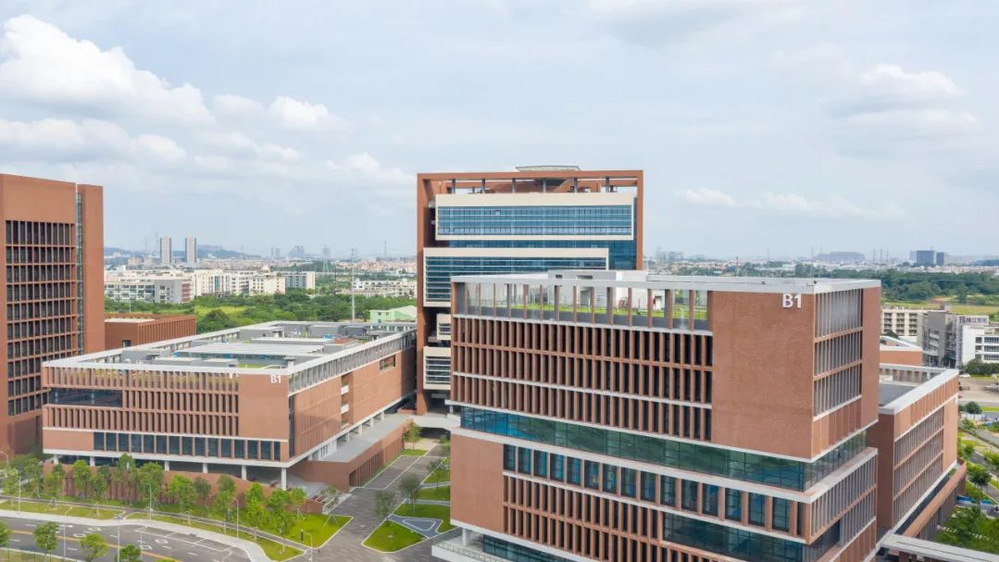
FACULTY
The School has built a young, international, and high-level teaching and research team, including many top-tier experts from world-renowned universities and enterprises such as MIT, Intel, Apple. The faculty includes, one academician (FREng), four IEEE Fellows, six high-level overseas talents, one recipient of the National Natural Science Fund for Distinguished Young Scholars and one recipient of the National Natural Science Fund for Excellent Young Scholars. All newly recruited faculty members have overseas experience. The School also invites top talent from leading enterprises across the integrated circuit industry to serve as adjunct or visiting professors, cultivating a powerful faculty team with both academic and industrial strengths.
RESEARCH PLATFORM
The School hosts one national engineering research center—the National Engineering Research Center for Mobile Ultrasonic Detection—as well as over ten provincial and ministerial-level key laboratories or engineering technology research centers, including the Guangdong Key Laboratory of Intelligent Sensing and Fusion Chip Technology. At present, the School has established a fully open, domestically leading micro/nanoelectronics platform, covering a total area of 3,200 square meters, including 1,729 square meters of cleanroom space. The major scientific research equipment is worth nearly 378 million RMB.
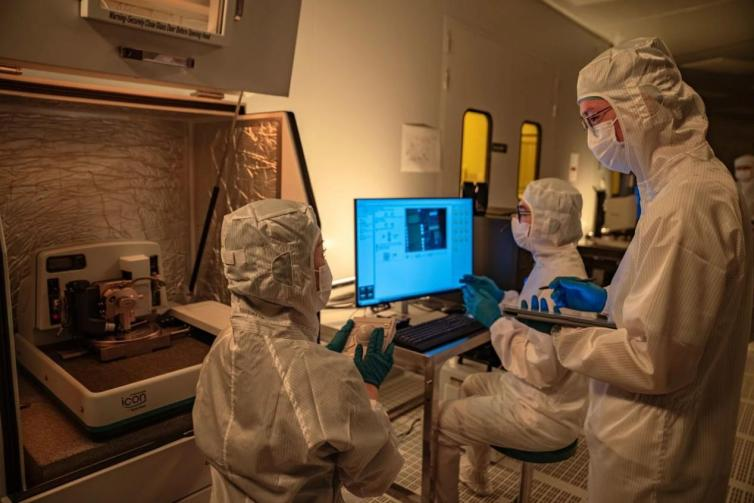
Micro & Nano Electronics Platform
UNIVERSITY-INDUSTRY COOPERATION
Located in the Guangdong-Hong Kong-Macao Greater Bay Area, a major hub for the electronics industry, the School actively collaborates with leading domestic enterprises and institutes such as ZTE, Guangzhou CanSemi, and the Institute of Microelectronics of the Chinese Academy of Sciences. While engaging in cutting-edge academic research, the School closely aligns with industry needs by conducting core technology research and actively promoting the transformation and commercialization of research outcomes, thereby achieving the deep integration of education, research, industry, and application. Drawing inspiration from Silicon Valley, the School fosters collaborative innovation with tech-driven microelectronics startups to build a public technology service platform for the Greater Bay Area, aiming to become a cradle of talent development and innovation incubation.
RESEARCH DIRECTION
Aligned with the national development strategy for integrated circuits and the regional demand for electronic information technologies, the School conducts forward-looking applied basic research and technological innovation in areas such as broadband communication, computing, low-power IoT, and AI chips, third-generation semiconductors, low-dimensional materials, metaterials, RF engineering, novel quantum devices, flexible and integration electronics’ technologies. Its mission is to cultivate high-quality talent with strong innovation and practical skills and establish itself as a world-class innovation hub and talent base in the field of integrated circuits and microelectronics.
REQUIREMENTS
1. Comply with laws and regulations of China, with good ideological, political, and moral behaviors. Be physically and mentally healthy, with no records of violation of laws or disciplinary rules. Have strong research capabilities and academic potentials.
2. Generally be under the age of 35 years old (inclusive).
3. Hold a doctoral degree from a renowned domestic or overseas university or research institution, with the degree obtained within the last three years; or be a recent PhD graduate who has passed the doctoral dissertation defense
4. Engage in full-time on-campus postdoctoral research.
SUPPORT
Working Conditions:
1. The university provides national, ministerial and provincial-level high-level research platforms and conditions, in line with its status as a Class A “Double First -Class” institution.
2. Those who complete 18 months of postdoctoral research or have completed the postdoctoral term for within one year can apply for the title of Postdoctoral Associate Researcher.
3. Upon completion of the postdoctoral program, individuals can apply for teaching and research, full-time teaching, full-time research positions in accordance with university regulations. The university will selectively appoint outstanding candidates to remain on staff. Those who obtain special funding upon postdoctoral completion they will be offered a faculty position.
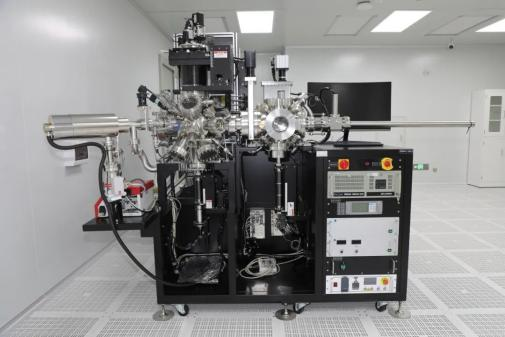
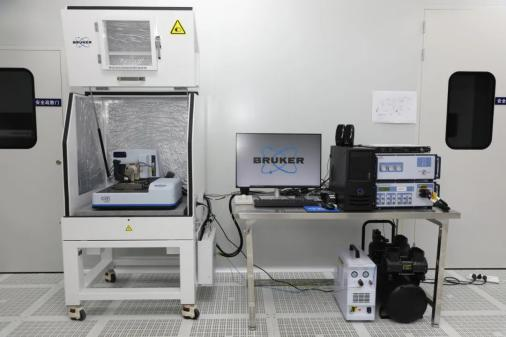
Living Conditions:
1. The university offers a comprehensive annual salary package of up to 570,000 RMB. Those with outstanding research achievements upon completion will be granted additional funding. The university encourages affiliated units and collaborating supervisors to provide extra support and matching funds.
2. Social insurance and housing provident fund will be paid in accordance with relevant regulations, and appointees will be eligible for associated benefits.
3. Postdoctoral apartments or rental subsidies will be provided.
4. Children can be enrolled in the university’s high-quality affiliated kindergarten or elementary school.
5. A research start-up fund of 200,000RMB will be provided.
6. Those who remain in Guangdong to work after completing the postdoctoral program and meet the relevant policies of the Guangdong Province will receive an additional housing subsidies of 400,000 RMB (three years) from the Guangdong Provincial Government.

Talent apartment
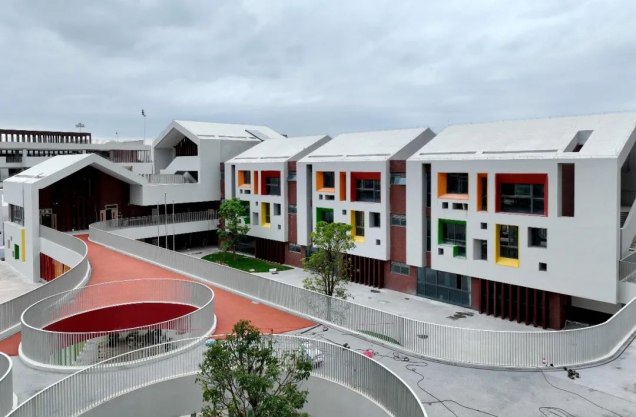
Kindergarten
APPLICATION
If you are interested in the above position, please send your CV/resume and supporting materials (in PDF format) to the school’s contact email. Please indicate your discipline and research focus, and use “Name+Discipline” as the email subject.
Contact Person: Ms. Chen
Email: yingyuan365@scut.edu.cn
Tel: +86-020-81181623
Applicants may also contact potential postdoctoral supervisors directly, please visit the school’s official website for more information: https://www2.scut.edu.cn/microelectronics_en/People/list.htm